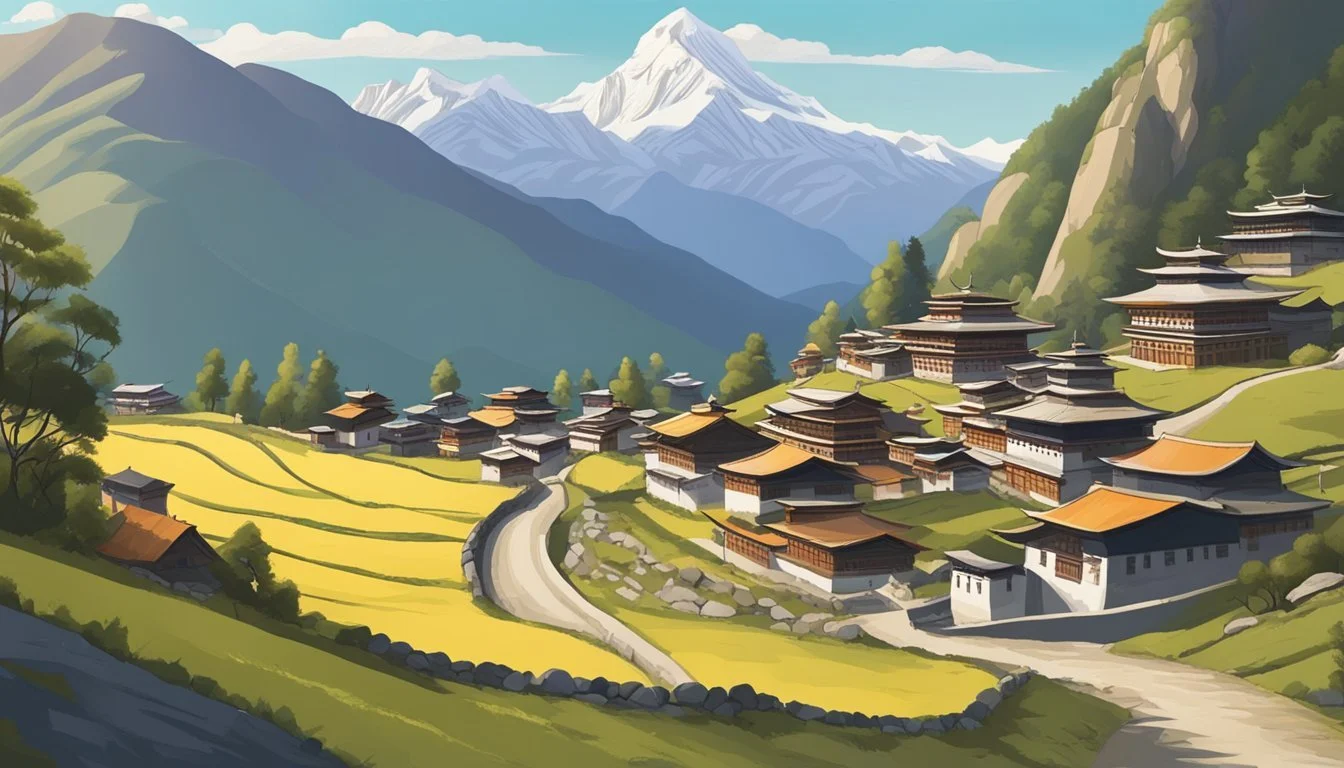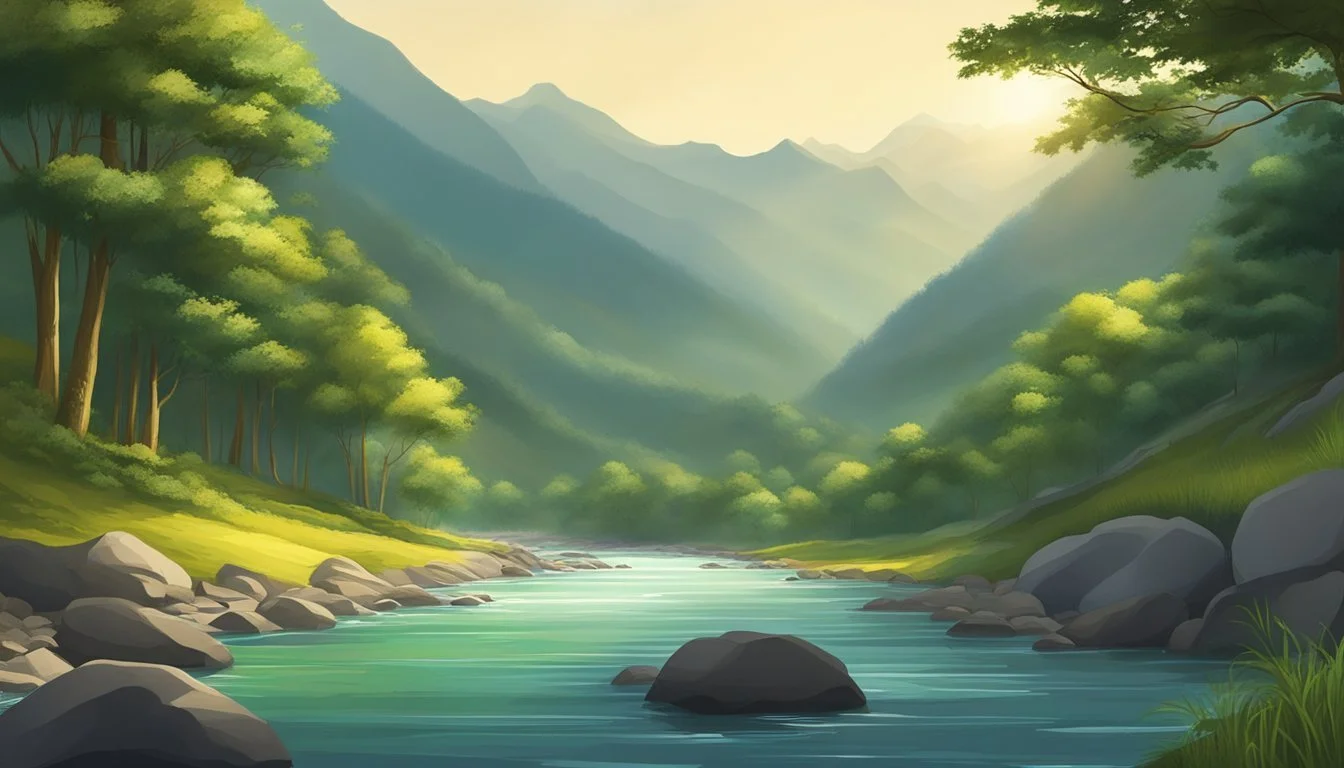6 Fascinating Documentaries on Bhutan
Exploring the Land of the Thunder Dragon
Bhutan, a small Himalayan kingdom nestled between India and China, has captured the imagination of filmmakers and audiences alike. This remote nation, known for its pursuit of Gross National Happiness, offers a unique blend of ancient traditions and modern challenges. Documentaries about Bhutan provide viewers with a rare glimpse into a country that has long remained isolated from much of the world.
These films explore Bhutan's rich culture, breathtaking landscapes, and the delicate balance between preserving its heritage and embracing progress. From examinations of the country's environmental policies to portraits of its people and customs, documentaries about Bhutan offer insights into a place that few outsiders have experienced firsthand. The selected films showcase different aspects of Bhutanese life and the nation's efforts to maintain its identity in a rapidly changing world.
1) 'Happiness is a Place' by Thomas Balmes
Thomas Balmes' documentary 'Happiness' offers a captivating glimpse into Bhutan's transition to modernity. The film focuses on an 8-year-old monk named Peyangki in a remote Himalayan village.
Balmes captures the arrival of electricity and television in the village, documenting the profound impact on local culture and traditions. The documentary contrasts Bhutan's commitment to Gross National Happiness with the encroachment of modern technology.
Through Peyangki's eyes, viewers witness the changes in daily life and social dynamics as villagers encounter television for the first time. The film explores themes of cultural preservation, progress, and the meaning of happiness in a changing world.
'Happiness' premiered at the International Documentary Festival Amsterdam in 2013 and won the World Cinema Cinematography Award at the 2014 Sundance Film Festival. Balmes' thoughtful approach provides an intimate look at Bhutan's unique journey toward development.
The documentary raises questions about the costs and benefits of modernization in a society deeply rooted in Buddhist traditions and values. It offers a nuanced perspective on Bhutan's efforts to balance progress with cultural identity.
2) 'The Other Final' by Johan Kramer
'The Other Final' is a 2003 documentary film directed by Johan Kramer. It chronicles a unique football match between Bhutan and Montserrat, the two lowest-ranked teams in the FIFA World Rankings at the time.
The film originated from Kramer's disappointment with the Netherlands' performance in the 2002 World Cup. He conceived the idea of organizing a match between the world's lowest-ranked teams.
This special game was scheduled to take place on the same day as the 2002 FIFA World Cup Final. It was held at the Changlimithang Stadium in Thimphu, Bhutan's capital city.
The documentary explores themes of sportsmanship, national pride, and the universal love for football. It showcases the excitement and preparations in both countries leading up to the match.
'The Other Final' offers a unique perspective on international football, focusing on teams far removed from the sport's global spotlight. It highlights the passion for the game that exists even in the most unexpected places.
3) 'Bhutan: The Dictatorship of Happiness' by Emanuelle Villecourt
This documentary explores the complexities of Bhutan, a small Himalayan kingdom known for its focus on happiness and environmental preservation. Directed by Emanuelle Villecourt, the film delves into the nation's unique approach to governance and societal values.
Bhutan is presented as a carbon-negative country with stunning natural beauty. The film highlights the importance placed on individual happiness by its people and government. However, it also examines the more controversial aspects of Bhutanese society.
The documentary reveals that Buddhism is the only tolerated religion under the Wangchuck dynasty, which has ruled for a century. It touches on the emergence of a youth counterculture movement, influenced by increased internet access and exposure to global ideas.
Villecourt's work provides a balanced view of Bhutan, showcasing its environmental achievements while questioning the concept of state-mandated happiness. The film encourages viewers to consider the complexities behind Bhutan's idyllic reputation.
Through interviews and on-the-ground footage, 'Bhutan: The Dictatorship of Happiness' offers a nuanced perspective on this often-romanticized nation. It invites audiences to reflect on the balance between tradition, progress, and individual freedoms in modern Bhutan.
4) 'Travellers and Magicians' by Khyentse Norbu
'Travellers and Magicians' is a 2003 Bhutanese film directed by Khyentse Norbu. It holds the distinction of being the first feature film shot entirely in the Kingdom of Bhutan.
The movie follows two parallel stories. The main narrative centers on Dondup, a young government official who dreams of escaping to America. His journey is delayed by the slow pace of village life, forcing him to hitchhike through Bhutan's countryside.
Khyentse Norbu, a respected lama in Himalayan Buddhism, weaves a tale that explores themes of escape and the search for a better life. The film showcases the beautiful, rustic scenery of Bhutan, providing viewers with a glimpse into the country's landscape.
Most of the cast consists of non-professional actors, with the exception of Tshewang Dendup, a well-known Bhutanese radio actor and producer. This casting choice adds authenticity to the performances.
'Travellers and Magicians' offers a unique perspective on Bhutanese culture and Buddhist philosophy. It presents a thoughtful exploration of desires and the pursuit of happiness, set against the backdrop of Bhutan's picturesque terrain.
5) 'The Living Edens: Bhutan - The Last Shangri-La' by Fred Kaufman
'The Living Edens: Bhutan - The Last Shangri-La' offers viewers a captivating glimpse into the secluded Himalayan kingdom of Bhutan. Produced by Fred Kaufman for PBS, this documentary showcases the country's pristine natural beauty and unique cultural heritage.
Narrated by Donald Sutherland, the film explores Bhutan's diverse ecosystems and wildlife. It highlights the nation's commitment to preserving its environment and traditional way of life.
The documentary captures the essence of Bhutan as the Land of the Thunder Dragon, revealing its stunning landscapes and rich biodiversity. Viewers are treated to breathtaking visuals of the country's mountains, forests, and valleys.
'The Living Edens: Bhutan' also delves into the lives of Bhutan's people, many of whom continue to practice subsistence farming and pastoralism. It examines how the Bhutanese maintain harmony with their natural surroundings.
This documentary provides a rare look at a kingdom that has largely remained untouched by outside influences. It offers insights into Bhutan's Buddhist culture and its efforts to balance modernization with tradition.
6) 'Power of the River: Expedition to the Heart of Water in Bhutan' by Greg I. Hamilton
This 2016 documentary takes viewers on an adventure through Bhutan's pristine rivers. Directed by Greg I. Hamilton, the film showcases the country's commitment to environmental protection.
The story follows a team of Bhutanese river guides led by Karma "Good Karma" Tshering. They embark on an expedition to explore Bhutan's wild waterways and search for the elusive Golden Mahseer, an endangered fish species.
Bhutan faces pressure to dam its rivers for hydroelectric power. The documentary highlights the tension between development and conservation in this Himalayan kingdom.
Filmed on Bhutan's wildest river, the film captures breathtaking scenery and the cultural significance of water in Bhutanese society. It premiered worldwide on January 8, 2023, bringing attention to Bhutan's environmental challenges.
'Power of the River' offers a unique glimpse into Bhutan's natural beauty and its efforts to balance progress with ecological preservation. The documentary provides insight into the country's ambitious commitment to protect its natural resources.
Exploring Bhutan Through Documentaries
Documentaries offer a window into Bhutan's unique culture and breathtaking landscapes. These films capture the essence of the "Land of the Thunder Dragon" and its journey towards modernization while preserving traditions.
Cultural Significance of Bhutanese Films
Bhutanese documentaries serve as vital cultural artifacts. They showcase the country's rich heritage, Buddhist traditions, and the concept of Gross National Happiness. Films like "The Happiness Revolution" explore Bhutan's delicate balance between modernity and tradition.
These documentaries often highlight iconic landmarks such as Taktsang Monastery and the giant Buddha Dordenma statue. They also depict everyday life, from colorful festivals to the simple routines of monks and farmers.
Many films focus on Bhutan's unique approach to development, emphasizing environmental conservation and cultural preservation. This perspective offers viewers insights into alternative models of progress and national well-being.
Impact on Tourism
Documentaries have played a crucial role in promoting Bhutan as a travel destination. Films like "The World's Happiest Country, Bhutan!" inspire wanderlust and curiosity about this Himalayan kingdom.
These visual narratives often showcase Bhutan's pristine nature, including its diverse wildlife and stunning mountain scenery. They also highlight the country's sustainable tourism model, which limits visitor numbers to protect the environment and culture.
Documentaries have helped dispel misconceptions about Bhutan, portraying it as an accessible yet mysterious destination. This exposure has led to increased interest in Bhutanese culture and philosophy worldwide, attracting mindful travelers seeking authentic experiences.
Understanding Bhutan's Unique Appeal
Bhutan captivates visitors with its commitment to cultural preservation and its distinctive approach to national well-being. This small Himalayan kingdom balances ancient traditions with modern progress, creating a truly one-of-a-kind destination.
Preservation of Tradition and Environment
Bhutan fiercely protects its cultural heritage and natural landscapes. The country bans mountaineering to preserve its sacred peaks. Traditional Bhutanese architecture dominates, with strict building codes maintaining the visual character of towns and villages.
Buddhist values permeate daily life, visible in colorful festivals, ornate temples, and prayer flags dotting the landscape. The national dress - ghos for men and kiras for women - remains widely worn.
Environmental conservation is paramount. Bhutan's constitution mandates that 60% of land remains forested. The country achieved carbon negativity through careful resource management and reliance on hydroelectric power.
Gross National Happiness
Bhutan famously prioritizes Gross National Happiness (GNH) over Gross Domestic Product. This philosophy, introduced by the fourth king in the 1970s, aims to balance material and spiritual development.
GNH encompasses four pillars:
Sustainable development
Cultural preservation
Environmental conservation
Good governance
The government regularly conducts nationwide GNH surveys to assess citizens' well-being. Results inform policy decisions across sectors like health, education, and economic development.
This unique approach has garnered international attention. Bhutan hosts conferences on GNH, sharing its experiences with global leaders seeking alternative measures of national progress.



